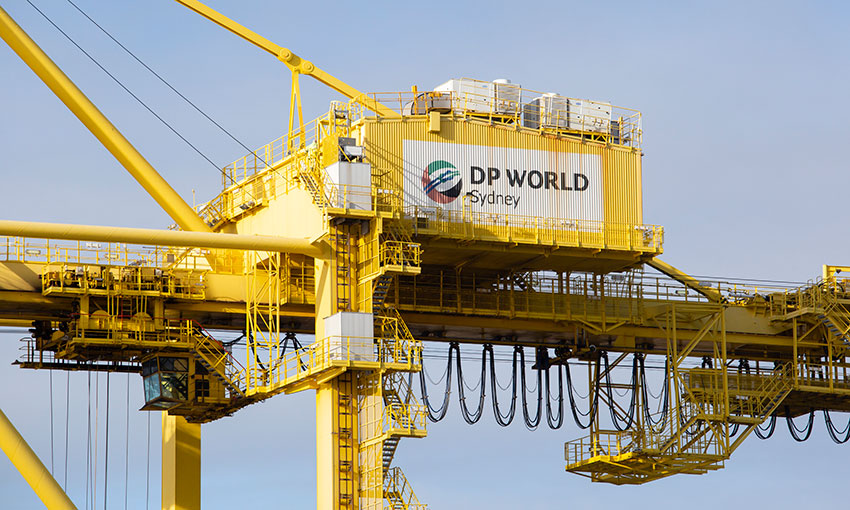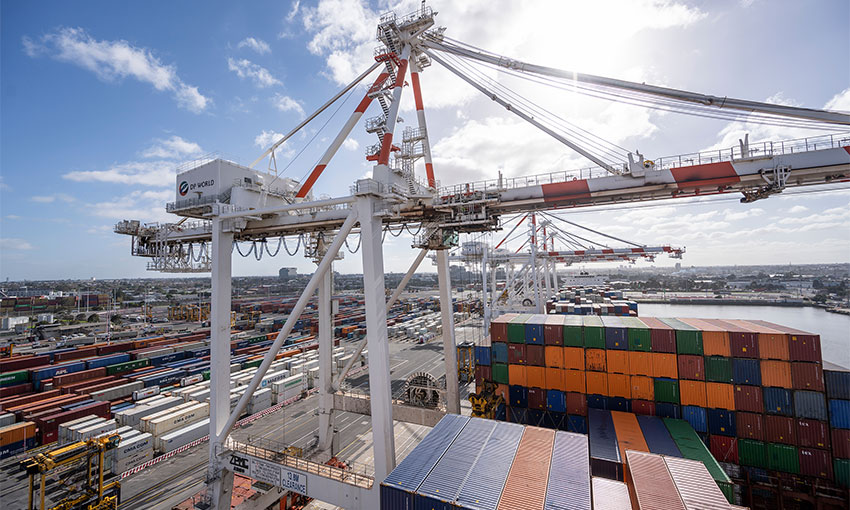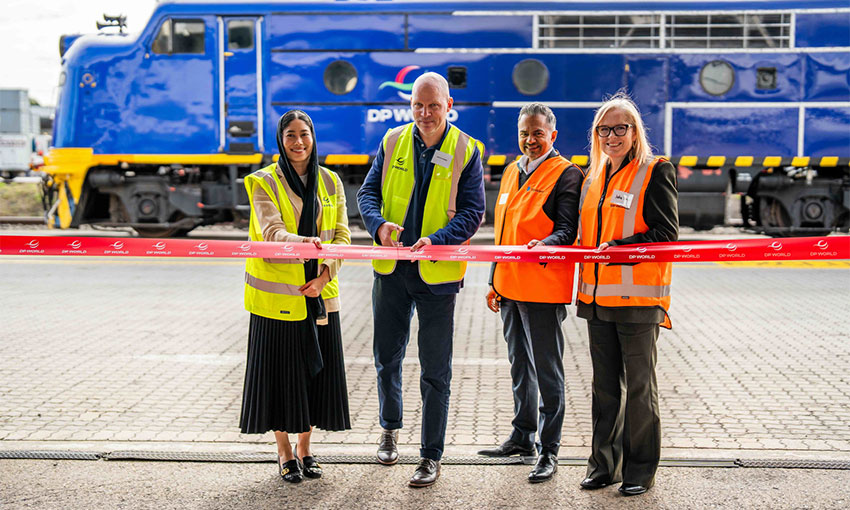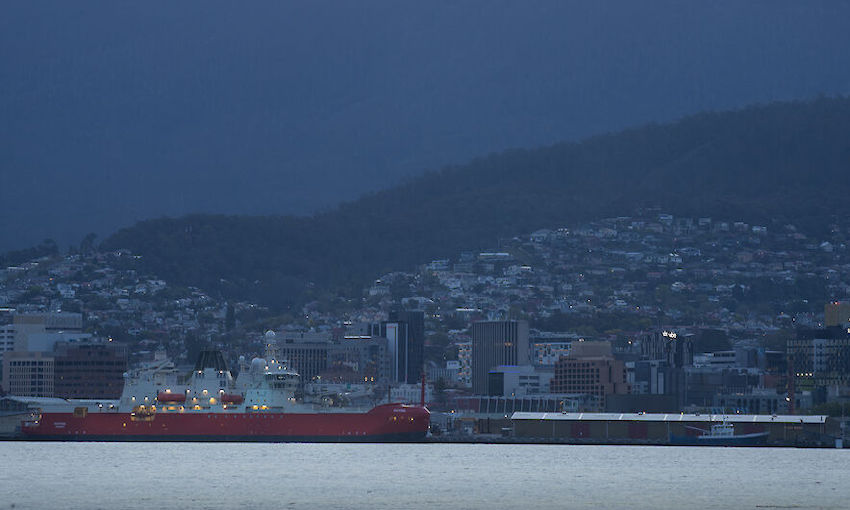THE MARITIME Union of Australia has announced more protected industrial action at DP World’s terminals in Australia and the company has announced it would no longer tolerate partial work bans starting this Friday (12 January). The company has also called on the federal government to intervene in the ongoing dispute.
The union began industrial action in early October 2023 after negotiations for a new enterprise bargaining agreement collapsed.
The new PIA
As of Monday (8 January), the MUA has announced protected industrial action at DP World’s Australian terminals through 22 January.
The work bans and stoppages echo those of the past months. They include three two-hour stoppages per day at all four ports; bans on loading and unloading trucks and trains; bans on working ships from specific shipping lines; eight-hour work stoppages for the first eight hours a ship is at port; and bans on overtime and shift extensions.
No more tolerance for partial work bans
After the union gave notice of its latest round of PIA, DP World announced in a letter to customers that it would “no longer tolerate partial work bans” as of Friday (12 January).
“As a result, employees participating in these actions will not be entitled to any payment until they are ready and willing to perform all of their normal duties,” the letter reads.
“This decision comes after exhaustive negotiations with the Maritime Union of Australia (MUA), with the assistance of the Fair Work Commission.”
The company wrote that this was a “necessary step to address the detrimental effects of the industrial action on vital industries.”
MUA assistant national secretary Adrian Evans said the workforce had been seeking “meaningful, good-faith negotiations” with the company since March last year, “but for nine months have faced nothing but obstruction and delay from the company”.
“[DP World executive vice-president, Oceania Nicolaj] Noes should use the three days of scheduled meetings this week to land a new agreement with the workforce instead of posturing in the media,” Mr Evans said.
Call for government intervention
Separately, DP World has called on the Australian federal government to intervene in the dispute.
The company said in a statement that “ongoing industrial action threatens to severely damage trade-reliant industries across the country”.
DP World said following consultation with an external economist, the company determined the cost of loss of output resulting from the MUA’s industrial action, involving work bans and stoppages at Australia’s major port terminals, is now exceeding $84 million per week.
“The MUA’s protected industrial action has therefore already cost the nation an estimated $1.34 billion since it began in October last year,” the company said.
Mr Noes said key export industries like meat and agriculture, as well as retailers and logistics companies are bearing the brunt of millions in lost sales, spoiled produce and supply chain breakdowns.
“The economic consequences have reached crisis point. Urgent action is needed before irreparable harm is done to Australian jobs and livelihoods,” Mr Noes said.
Mr Noes said the MUA motivated stoppages are crippling the nation and disrupting the flow of an estimated 44,000 containers, many of which are stalled at the nation’s ports.
According to the company, the backlog will take two to eight weeks to clear
DP World is now calling on affected industries to make representations directly to their MPs or industry bodies in a bid to motivate political intervention.
The company said the MUA abandoned negotiations in December demanding a 27.5% pay rise on approximately $130,000 salaries.
Mr Evans accused the company of lying to the Australian business community and the federal government to cut workers’ pay.
“The figures quoted by Dubai Ports are the stuff of imaginary, nonsensical fantasy. Their paid economist has sold them a pup,” Mr Evans said.
“When their incompetently managed IT systems were hacked by Russians they reassured everybody the massive, nationwide shutdown of their four ports would not impact customers or retailers. They now need to pick which of their competing statements was a lie.”
Mr Evans continued, saying, “During three days of scheduled meetings this week, yet again at the Union’s instigation, Dubai Ports has an opportunity to land a fair deal that delivers a pay outcome which keeps pace with rampant inflation and which keeps their workers safe on the job. Any HR manager who seeks less than that is a bum.”
Support for DP World from industry bodies
Shipping Australia, which represents the interests of ship owners, liner companies and shipping agents, said in a statement it “understands that DP World remains committed to negotiating in good faith, despite claims to the contrary”.
“However, as usual the waterfront union seems more focused on economically destructive tactics rather than productive bargaining. By limiting the efficiency of supply chains, the waterfront union is causing severe harm to the Australian economy and is therefore putting numerous Australian jobs and the livelihoods of Australian families at risk,” SAL said.
“Shipping Australia supports DP World Australia in this dispute. We support DP World’s call today for government intervention in the DP World dispute.”
The Australian Chamber of Commerce and Industry also voiced support for government intervention.
The chamber said the cost of living problems being borne by Australian consumers will worsen if the ongoing industrial dispute on the waterfront is left to continue without intervention.
ACCI chief of policy and advocacy David Alexander said the dispute is significantly affecting industries across the board, including industries as diverse as retailers and the meat export sector.
“The dispute is exacerbating the cost-of-living crisis,” he said.
“The longer the government waits, the more Australia’s economy will suffer.”
The shippers’ view
Freight & Trade Alliance director Paul Zalai said the ongoing industrial action is impacting all containerised port operations in Australia, with international vessel delays varying from two to five weeks.
Mr Zalai said this is having devastating financial impacts on exporters and importers and is causing serious reputational harm to Australia as a viable trading nation.
“Again, this weekend we have received further advice from Maersk that the current congestion and waiting times at Port Botany has meant they are unable to secure the scheduled berth for the Merkur Horizon, meaning it will now omit Sydney with the knock-on effect that it also going to omit Melbourne with all discharge in Brisbane by mid-January.”
Mr Zalai said it is not uncommon for importers to face delays for a single consignment up to four times due to vessel rotation and congestion.
“We are seeing in these instances when cargo is discharged at other Australian ports, most shipping lines provide an alternate option to ship these containers back to the intended destination with a subsequent coastal move generating an additional delay of up to three weeks – alternatively importers can arrange their own domestic movement at another significant and unbudgeted cost,” Mr Zalai said.
“We are witnessing many importers now paying much more opting to use airfreight to meet contractual obligations, while others are now ordering stock in advance of anticipated demand – this excess stock will add pressure on already limited warehouse availability and will be another factor forcing up price of goods on our shelves.”
Mr Zalai said while importers are suffering, the impacts are much more severe on Australian exporters.
He said the lack of predictability of shipping schedule is seeing many exporters who rail from regional centres direct to the wharves now moving and storing their loaded containers at nearby port facilities. This is adding transit delays, double-handling costs and additional truck movements.
“Trains often operate on a take or pay method, meaning you either use the slot or pay for it anyway even if the slot remains empty. The decision for our regional exporters then becomes whether to double handle the container at the port and pay for storage or pay for the empty train slot and rail it again the following week. Between three of our exporter members, data revealed more than $2 million in double handling and staging costs was paid over the last three month period,” Mr Zalai said.
According to Mr Zalai, compounding the industrial action has been the extreme weather events and machinery failures at DP World in Brisbane and road works in Melbourne resulting in trucking scheduling difficulties, futile trips, extended wait times and transport operators implementing higher fees to recover costs.
As an indication of the severity of the problems, the Victorian Department of Transport and Planning has declared the situation an official “Disruption Event” bringing stakeholders together to structure communications and implement strategies with the intent of minimising adverse impacts.





